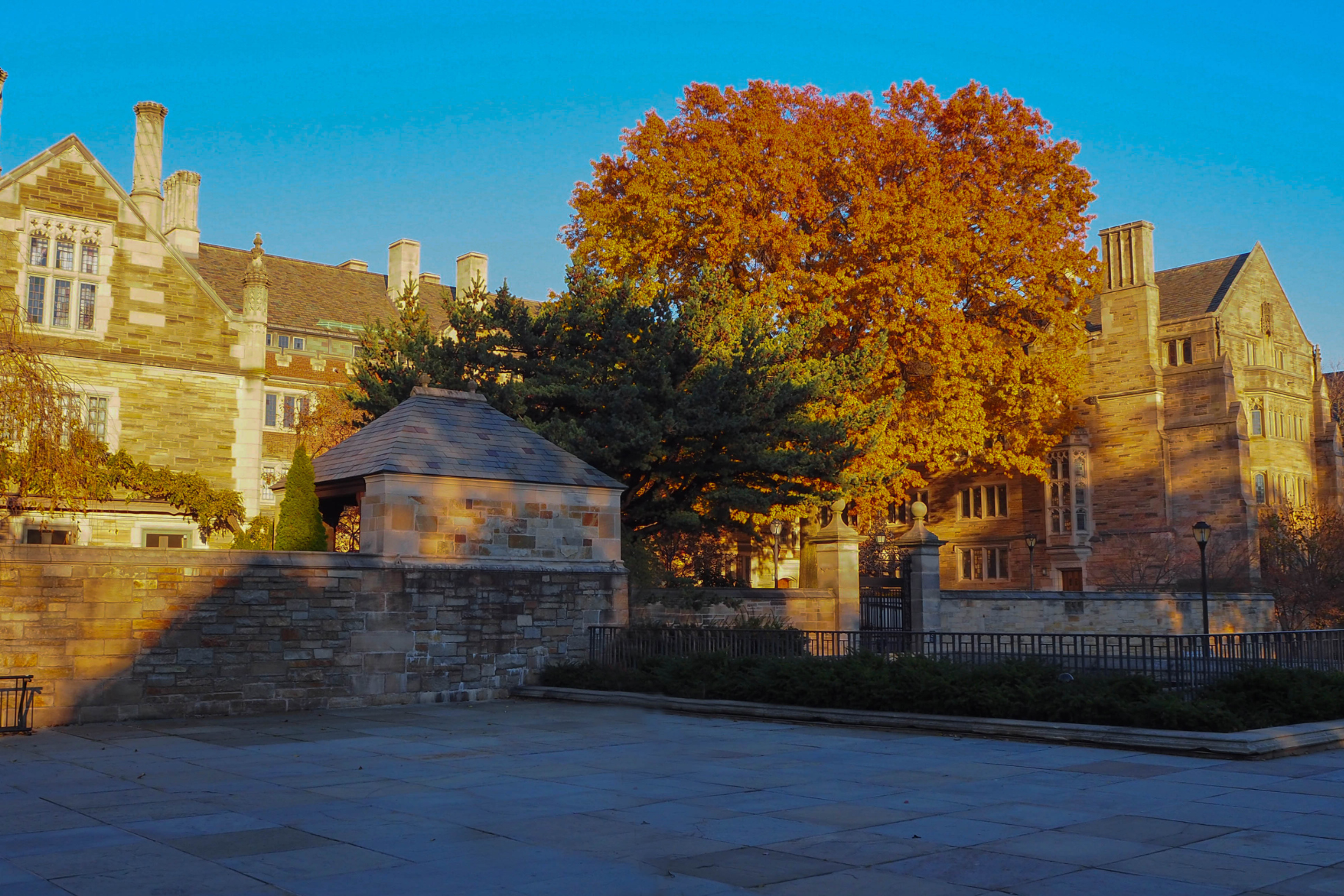Yale School of Medicine: Letter of Recommendation Guide
Learn how to navigate the Yale School of Medicine's letter of recommendation process with our comprehensive guide.
Posted March 6, 2025

Table of Contents
If you're planning to apply to the Yale School of Medicine, you're probably well aware of the importance of letters of recommendation in the admissions process. These letters offer a unique perspective on your qualifications and potential as a medical student. To help you navigate this crucial aspect of your application, we've created a comprehensive letter of recommendation guide specifically tailored for Yale applicants.
How to Choose the Right Recommenders
When it comes to applying to medical school, one of the most important aspects is securing strong recommendation letters. These letters provide valuable insight into your abilities, character, and potential as a medical student. Therefore, it is crucial to carefully select individuals who can truly capture your strengths and potential.
What you can do first is to consider reaching out to professors who have taught you in challenging courses. These individuals have witnessed your academic growth and can speak to your intellectual abilities and work ethic. They can highlight your achievements, such as earning top grades or excelling in class discussions, which demonstrate your commitment to learning and your ability to handle rigorous coursework.
Research mentors can also make excellent recommenders. If you have participated in any research projects, whether in a laboratory or a clinical setting, your research mentor can provide valuable insight into your scientific curiosity, problem-solving skills, and ability to work independently. They can discuss your contributions to the research project, any publications or presentations you may have been involved in, and your overall potential as a future researcher.
Clinical supervisors are another group of individuals who can provide meaningful recommendations. If you have had any clinical experiences, such as shadowing a physician or volunteering at a hospital, your clinical supervisor can speak to your interactions with patients, your ability to handle challenging situations, and your overall dedication to the field of medicine. They can highlight your compassion, empathy, and professionalism, which are crucial qualities for any aspiring medical student.
When considering recommenders, it's important to keep in mind that Yale values diversity and aims to build a diverse community of medical professionals. So, it is beneficial to choose recommenders who can speak to your unique strengths and experiences, as well as your potential to contribute to the diversity of the Yale School of Medicine.
For instance, if you have been involved in any community service or advocacy work, reaching out to individuals who can vouch for your dedication to underserved populations or your commitment to addressing healthcare disparities can be highly beneficial. These recommenders can highlight your ability to connect with diverse patient populations, your cultural competency, and your potential to make a positive impact on the healthcare landscape.
Additionally, if you have held any leadership positions, whether in student organizations or extracurricular activities, consider asking individuals who have witnessed your leadership skills to write your recommendation letters. These recommenders can discuss your ability to motivate and inspire others, your organizational skills, and your potential to become a future leader in the medical field.
Choosing the right recommenders is a crucial step in the medical school application process. By selecting individuals who can provide meaningful insight into your abilities, character, and potential, you can ensure that your recommendation letters truly showcase your strengths and potential as a future medical student. Remember to consider individuals who can speak to your academic strengths, personal qualities, and experiences in the field of medicine, while also keeping in mind the importance of diversity and your potential to contribute to the Yale School of Medicine community.
How to Structure Effective Letters
When it comes to structuring recommendation letters, there are a few key elements that should be included to ensure their effectiveness. First, the letter should introduce the recommender and their connection to you, providing context for the reader.
For instance, if the recommender is a professor who taught you in a biology course, they can mention how they have observed your dedication to learning and your passion for the subject. This will establish their credibility and expertise in evaluating your qualifications for medical school.
Next, it should highlight specific examples of your accomplishments, skills, and qualities that make you a strong candidate for medical school.
For example, the recommender can mention your exceptional performance in anatomy and physiology, where you consistently demonstrated a deep understanding of complex concepts and excelled in practical applications. They can also highlight your ability to work well in teams, as evidenced by your leadership role in a research project that required collaboration with fellow students and faculty members.
Additionally, including anecdotes or stories that demonstrate your character or experiences can make your letter more compelling and memorable.
One such anecdote could be about a time when you volunteered at a local clinic and went above and beyond to ensure the comfort and well-being of the patients. The recommender can describe how you showed empathy and compassion towards individuals from diverse backgrounds, making a lasting impact on both the patients and the healthcare professionals you worked with.
The recommender should provide insights into your potential as a future medical professional, emphasizing your aptitude for critical thinking, patient care, and ethical decision-making.
They can discuss how you consistently demonstrated critical thinking skills during class discussions and how you applied this ability to analyze complex medical cases during your internship at a hospital. The recommender can also highlight your commitment to patient care by mentioning instances where you went above and beyond to ensure the well-being and comfort of your patients.
Lastly, the letter should conclude with a strong endorsement and a recommendation for your admission to the Yale School of Medicine.
The recommender can express their confidence in your ability to excel in medical school and emphasize how your unique combination of academic excellence, interpersonal skills, and dedication to patient care make you an ideal candidate for the program.
Ensure Your Recommendations Stand Out
With numerous applications to review, admissions committees at prestigious institutions like Yale are often inundated with recommendation letters. To ensure that your letters stand out amidst the competition, there are a few strategies you can employ.
First, carefully explain the purpose and mission of the Yale School of Medicine to your recommenders, ensuring they understand the qualities and attributes sought in successful candidates. Providing them with a clear understanding of what is expected can help them tailor their letters to highlight your fit with the program.
Yale School of Medicine, founded in 1810, is one of the oldest medical schools in the United States. It has a rich history of producing exceptional physicians and researchers who have made significant contributions to the field of medicine. The school is known for its commitment to excellence, innovation, and leadership in medical education, research, and patient care. By sharing this information with your recommenders, you can help them appreciate the prestigious nature of the institution and the importance of their role in the admissions process.
What you can do next is don't be afraid to discuss specific experiences or anecdotes with your recommenders that highlight your unique qualities or achievements. By sharing these details, you enable your recommenders to craft a more personalized and impactful letter on your behalf.
Think about the moments in your academic journey that have shaped you into the aspiring medical professional you are today. Perhaps it was a research project where you made a groundbreaking discovery, or a volunteer experience where you demonstrated compassion and empathy towards patients. These experiences not only showcase your abilities but also provide your recommenders with concrete examples to include in their letters. By giving them a glimpse into your journey, you allow them to paint a vivid picture of your potential as a future medical student at Yale.
It is also essential to communicate any specific skills or qualities that you possess, which align with the values of the Yale School of Medicine. Are you a natural leader who has spearheaded initiatives within your community? Do you possess exceptional problem-solving abilities that have been demonstrated through your academic achievements? By highlighting these unique attributes, you provide your recommenders with valuable insights that can help them emphasize your strengths in their letters.
Lastly, remember to express your gratitude and appreciation to your recommenders for taking the time and effort to write your letters. A heartfelt thank you can go a long way in showing your recommenders that you value their support and trust in their ability to present you in the best possible light.
Submission Strategies for Yale
Submitting your recommendation letters to Yale requires careful attention to detail. As part of the application process, Yale accepts letters of recommendation through the AMCAS (American Medical College Application Service) Letter Service, Interfolio, or VirtualEvals.
It's important to follow the instructions provided by Yale carefully and to ensure that your recommenders are aware of the specific submission process. Be sure to communicate with your recommenders well in advance of the deadline to give them ample time to complete the letters and submit them on time.
The letter of recommendation plays a crucial role in your application to the Yale School of Medicine. By carefully choosing the right recommenders, structuring effective letters, ensuring they stand out, and following the submission strategies, you can maximize your chances of impressing the admissions committee and ultimately securing a spot at this renowned institution.
Read these next:
- How Many Letters of Recommendation Do You Need for Medical School? An Expert's Guide
- How to Write a Compelling Letter of Intent for Medical School
- Writing a Strong Medical School Update Letter for Admission
- How to Craft the Perfect Medical School Interview "Thank You" Letter
- Yale School of Medicine Requirements: What You Need to Apply












